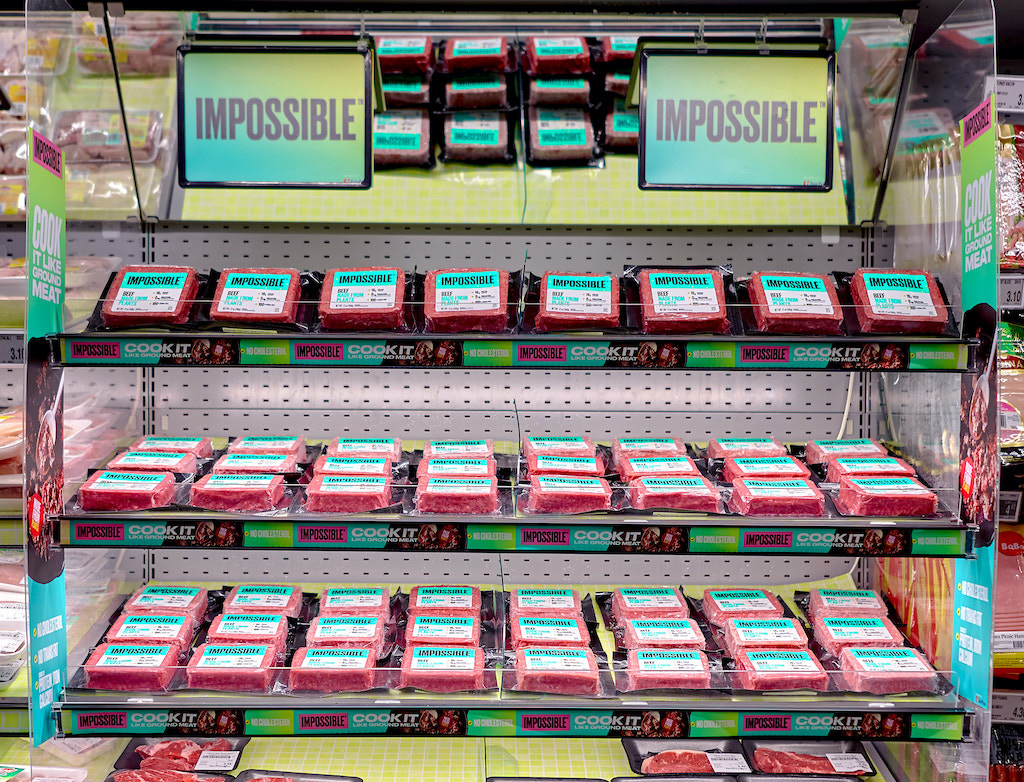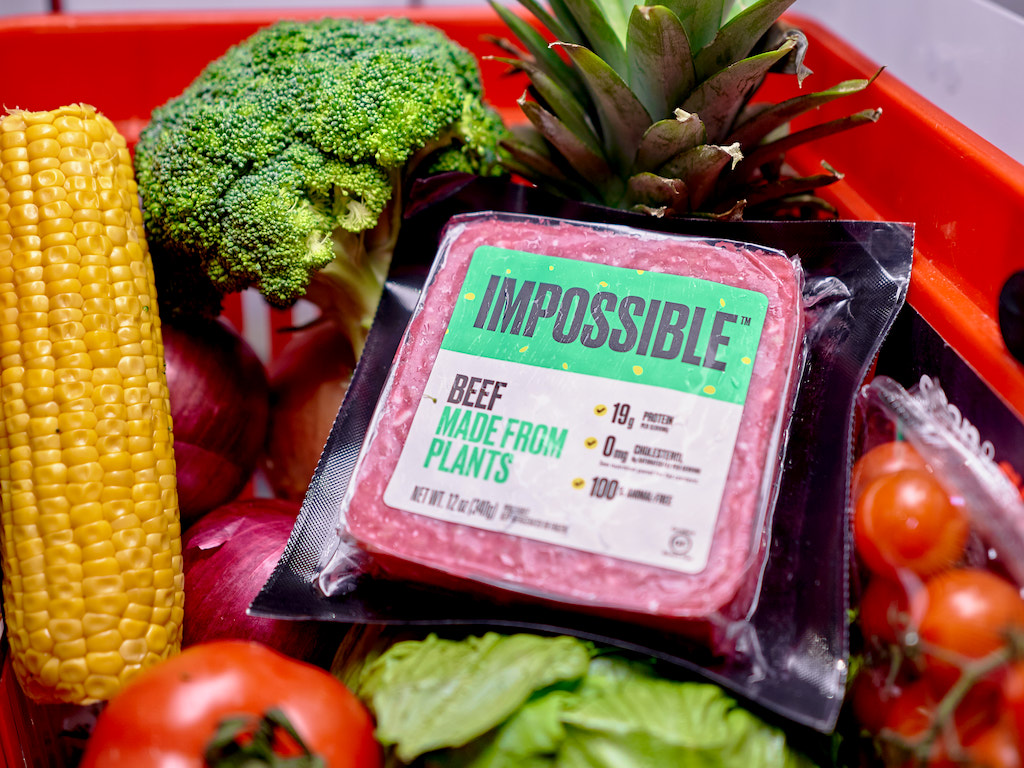3 Mins Read
Impossible Foods, the maker of the famous plant-based beef alternative, has announced that it is cutting retail prices in Hong Kong grocery stores by more than 20%. The move comes after it lowered prices in the U.S., which marked its third double-digit reduction from the food tech in less than a year, thanks to what it describes as the “tremendous growth and economies of scale” it has experienced in recent months.
Announced today (March 4), Impossible Foods has slashed suggested retail prices by over 20% across Hong Kong supermarkets. Starting from Friday (March 5), its plant-based Impossible Beef will be sold across ParknShop stores for HK$65.90 per 340 gram retail pack, down from HK$89.90, representing a 26.7% decrease. The product is currently sold across 100 stores in Hong Kong under the ParknShop group, which includes Fusion, Taste, Food Le Parc and Great Food Hall, as well as via its e-commerce platform.
It comes after the food tech announced its third price cut aimed at retailers in early February this year, which reduced prices by 20% for U.S. grocery stores, where it is available at major chains like Walmart and Kroger, but did not specify the exact figures that would apply to its international markets in Hong Kong, Canada and Singapore at the time.

Our intention is to ultimately undercut the price of ground beef from cows – a crucial step in furthering the company’s mission to turn back the clock on global warming.
Heidi Nam, General Manager, Impossible Foods Hong Kong
In January, the firm slashed wholesale prices by 15% for foodservice distributors, as part of its mission to ultimately “undercut the price of ground beef from cows.”
Commenting on the Hong Kong retail cut, Impossible Foods general manager for Hong Kong, Heidi Nam, said it was a “crucial step in furthering the company’s mission to turn back the clock on global warming,” adding that customers should “stay tuned for additional price cuts in the future.”
Norman Yum, managing director of ParknShop, said the move will “pass valuable savings back to our consumers during these trying times,” and is in alignment with the chain’s strategy of “giving people the opportunity to embrace a more plant-based diet and to promote the environmental awareness and sustainability-driven message”.

Impossible Foods says that this reduction comes amid record-breaking sales and is a “direct result of the dramatic business expansion Impossible Foods is experiencing”. According to the food tech, its retail footprint has grown more than 100-fold since its first grocery store debut in 2019 and has undergone the “largest operational expansion” in its 10-year history over 2020, thanks to the coronavirus-driven boost in demand for plant-based alternatives.
We are excited to give people the opportunity to embrace a more plant-based diet and to promote the environmental awareness and sustainability-driven message at the core of both ParknShop and Impossible Foods.
Norman Yum, Managing Director, ParknShop
“This explosive growth has enabled new economies of scale – cost savings that Impossible Foods wants to pass along to customers, business owners and consumers,” said the startup in a statement.
According to the company’s data, 92% of sales of its famous plant-based burger is directly displacing animal-derived meats, which has meant huge environmental savings, given the burden that animal agriculture has on the planet.
Impossible Foods’ sustainability-focused mission has recently won them headlines with renowned climate expert and international diplomat Christiana Figueres, who formerly led the U.N. Paris agreement talks, joining its board.
All images courtesy of Impossible Foods.




